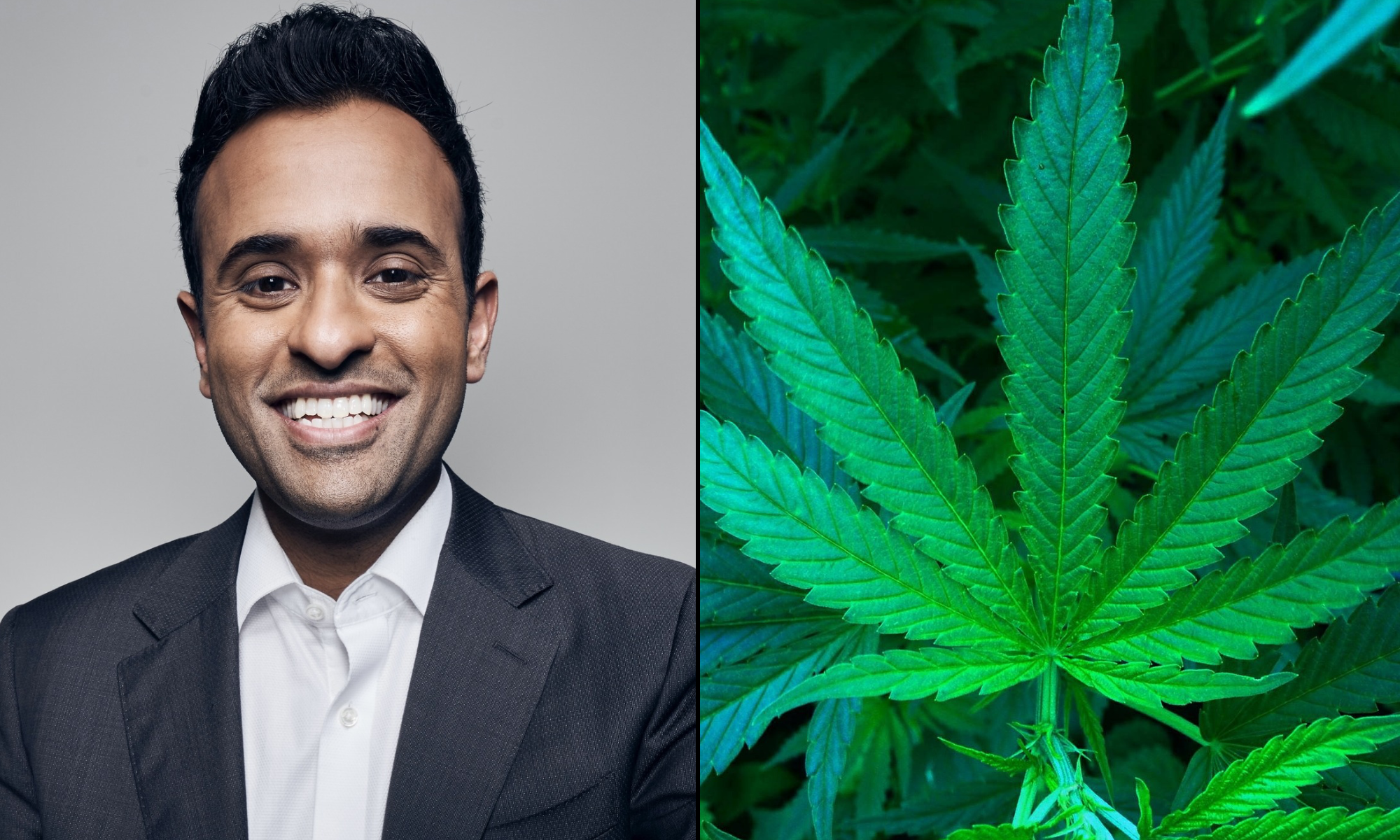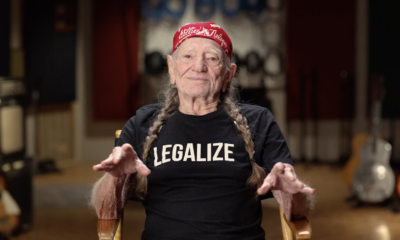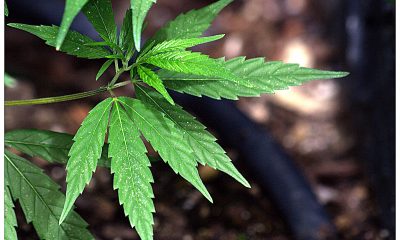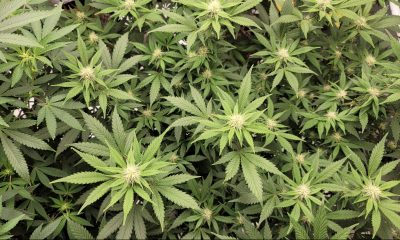Politics
GOP Presidential Candidate Ramaswamy Talks Marijuana Legalization In Chat With Joint-Smoking Bill Maher

Republican presidential candidate Vivek Ramaswamy reiterated his support for federal marijuana legalization in an interview that aired on Sunday, saying the current state–federal conflict on cannabis is “a farce” that allows governments to unfairly target people.
Appearing on the podcast Club Random with Bill Maher, who smoked a joint during the conversation, Ramaswamy said the gap between state and federal marijuana laws is “a joke” that “undermines the rule of law.”
“I think we should align the federal law with the state law,” he told Maher.
Pressed by Maher whether that was an endorsement of federal cannabis legalization, Ramaswamy acknowledged that it was. “That’s what that means, yeah,” he replied.
Ramaswamy implied that because of the conflicting laws, law enforcement is able to target people almost indiscriminately.
“When you have different standards of law, like, when you have that ‘Look the other way and sweep it under the rug,’ that’s when we actually get an unfair state that can target people for saying the wrong thing, thinking the wrong thing,” Ramaswamy said.
Maher interjected to point out that “racism historically hid behind states’ rights,” but Ramaswamy downplayed the role of racism in America today.
“This was part of our past,” he said, “and today I think it—you know, political discrimination, I think, is the new equivalent of unfairness in the law that we’ve seen for racism in maybe decades and centuries past.”
Ramaswamy, an entrepreneur and former pharmaceutical executive, has been walking a fine line on drug policy matters as his campaign gains popularity relative to Florida Gov. Ron DeSantis, who has so far been seen as the top challenger to former President Donald Trump. Last week he lashed out at Fox News over a story that characterized him as being in support of decriminalizing certain “hard drugs.”
“When you strike the swamp, the swamp strikes back,” he posted on X, the platform formerly known as Twitter, calling the article “more planted trash” and painting himself as the victim of a media smear.
He clarified that he sees decriminalization of certain psychedelics as just one piece of a more comprehensive drug-control policy. “I support decriminalizing ayahuasca & ketamine for veterans suffering from PTSD, to prevent the epidemic of fentanyl & suicide,” he wrote.
As for his own substance intake, Ramaswamy told Maher that he doesn’t drink or smoke. “I try to not have too many vices,” he said.
The GOP candidate said in a separate interview recently that decriminalization is an “important” piece drug policy and that tighter border security and reduced U.S. demand for drugs are also essential.
“I think in the long run—and I’m talking about over a long run period of time—decriminalization, serially, is an important part of the long-run solution here,” he said during an appearance in late June at the Porcupine Freedom Festival (PorcFest) in New Hampshire.
Ramaswamy said at the event that he’s skeptical of prohibition and is “not a war-on-drugs person.”
He also stressed the availability of psychedelics as a viable alternative for people who are suffering from mental health conditions.
“I’m probably the only person in the modern history of our party that is open to a conversation about, for veterans at least. Let’s start with PTSD, where there’s good evidence for psychedelics, from ayahuasca to ketamine,” Ramaswamy said. “You could actually have an open discussion about rationally giving people off ramps.”
Other GOP presidential candidates have so far been more circumspect about legalizing marijuana federally. Trump, for example, has simultaneously described cannabis as “a very popular thing” and contended that it “does damage.”
“Canada has gone all that way [with legalization], and other countries have gone all that way. Some countries won’t do it,” he said during a recent interview with Newsmax. “But I am going to take a look at some final results. But indications are that is not exactly helpful.”
DeSantis, for his part, said in June that he would not federally decriminalize cannabis if elected. He said he’s concerned about the potency of marijuana and, despite a lack of evidence, the possibility that products could be laced with more dangerous drugs such as fentanyl. “If you do something with that, it could be goodnight right then and there,” he said. “You could die just by ingesting that, so I think that that’s problematic.”
Mike Pence, who served as vice president under Trump, has long been against marijuana use and has consistently opposed even incremental reform, claiming that cannabis is a gateway to other illicit drugs. As governor of Indiana, he pushed the legislature to ramp up criminalization of illicit substances—saying the state was “leaning into the war on drugs”
Former New Jersey Gov. Chris Christie, meanwhile, claimed in June that he would “end” the drug war if elected, but only partially. He said he wants to focus instead on treatment, but he prescribed a tougher approach for those who sell drugs. “The dealers who are making money off of this, you bet they should be penalized,” he said during a CNN townhall. And Christie still opposes the legalization of marijuana, describing tax revenue from regulated sales as “blood money.”
Robert F. Kennedy Jr., who is running as a Democrat, took a swipe at DeSantis over his opposition to reform. If elected, he said, “I will decriminalize cannabis at the federal level.” Like Ramaswamy, he declined an invitation to smoke a joint with comedian Bill Maher.
Kennedy’s decriminalization position aligns him to some extent with President Joe Biden, who has also backed decriminalization and allowing states to set their own cannabis laws. The president has also directed an administrative review into marijuana’s federal scheduling that one top official recently told Marijuana Moment he hopes to have completed by the year’s end.
Federal Psychedelics Reform Is ‘More Supported By Republicans,’ Former Texas Governor Claims
















